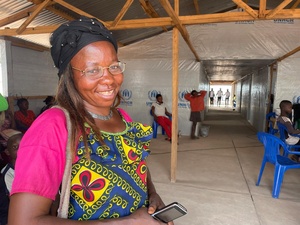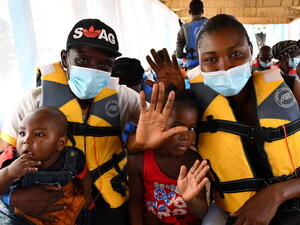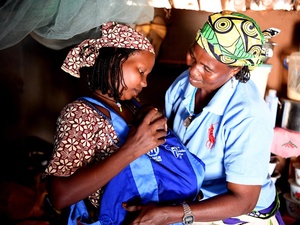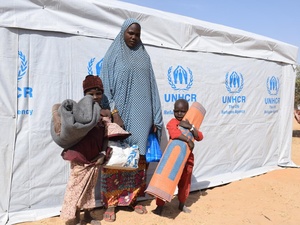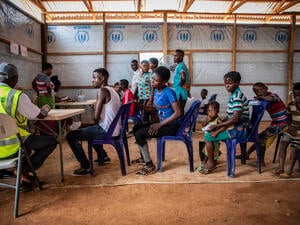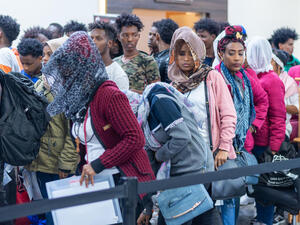Kosovo: returns wind down
Kosovo: returns wind down
The return of refugees from neighbouring countries is winding down. Yesterday there were just 2,500 returns of refugees from the asylum countries in the region. The number of refugees remaining in the region is now well under 100,000. More than 20,000 refugees have returned from abroad, the largest number (over 14,000) from Turkey.
In addition to the refugees returning via the FYR of Macedonia, a growing number of Kosovars are returning through Albania, mainly on the ferry from Italy to the port of Durres. UNHCR staff in Durres are very concerned by reports that returning refugees are being harassed and even robbed in Albania as they make their way from Durres to Tirana to Kukes. UNHCR staff and NGO partners in Albania are doing everything they can to help these spontaneous returnees get home safely.
Inside Kosovo, the campaign against the minority Serbs and Roma continues. Four more Serb houses were set on fire yesterday in Prizren, right in the centre of town on the hill overlooking the city, behind the Orthodox church. One colleague reported that around 10 pm last night, a neighbour was seen pouring water on the roof of her house - a sign that more arson in the area was to be expected.
On the weekend, a small Orthodox chapel was blown up on the road to Suva Reka, and two Serb houses were set on fire in the centre of Pec yesterday, just a few hundred metres from the Headquarters of the Italian KFOR troops.
In Prizren, 51 of 75 Roma from Landovica (8 km outside the city) who fled to a sports centre in the city on 16 July returned to their homes over the weekend. They had initially fled following seven arson attacks in Landovica. KFOR arrested two of the alleged arsonists.
UNHCR today is organizing a reconciliation meeting in Prizren between the Albanian and the Roma communities.
In Pristina, UNHCR continues to work on the transfer of some 2,300 Roma currently staying in school in Kosovo Polje. The transfer to a new site, developed with the help of UK KFOR troops, is scheduled for 21 July.
In Djakovica, a group of some 800 Roma continue to live in an overcrowded, makeshift camp near a cemetery, where there is a KFOR presence. More than 4,000 Roma are believed to remain in and around Djakovica. Some are coming under increasing pressure and attack, including abductions and harassment in Berkoci and Coloni.
Much of the Roma area of Mitrovica has been destroyed by Albanians. U.N. Special Representative Bernard Kouchner visited the city on Saturday and issued a plea for reconciliation. Ten minutes after his departure, another house was set afire.
A freedom of movement agreement in the divided city has yet to be signed. The Albanian and Serb sides are expected to meet today to see if they can finalize the agreement, which could be signed as early as Wednesday.


